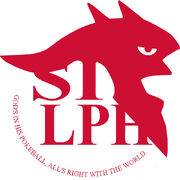
| Important offices (at time of collapse in 2011) | |
|---|---|
|
Berlin, Germany |
Central branch |
|
Saffron, Japan (later relocated to Mahogany, Japan) |
Second branch |
|
London, England |
Baking and global finance |
|
Boston, United States |
Function unknown |
|
Nevada, United States |
Aerospace engineering and testing |
|
Siberia, Russia |
Medical research and testing |
|
Moscow, Russia |
Function unknown |
|
Beijing, China |
Non-nuclear warheads development |
|
Tel Aviv, Israel |
Function unknown |
|
Bethany base, Iceland |
Function unknown |
|
Too many parameters | |
History[]
Silph Co. was founded in England in 1854 by two brothers, Silas and Elias Silph. Originally a steel company focused in providing rail-laying to the newly-growing steam train industry, the two brothers grew their small company into a national powerhouse thanks to a series of smart investments, and soon began looking to expand to the United States and mainland Europe. The war between Prussia and Austria-Hungary in 1870 prompted the brothers to change Silph's focus from rails to arms, and they were more than willing to make their money providing rifles to both sides of the conflict. This would mark the beginning of Silph as a military industry, and the profits from their actions allowed them enough investment to purchase a number of small banks. Through the years, Silph grew itself into a global powerhouse, focusing not just on military arms production, but medicine and medical experimentation, commercial goods and services, banking and finance, and products for pokemon trainers (localized to Japan only, for reasons unknown).
The brothers died shortly after the turn of the century, and their replacement quickly realized just how large and powerful on the global stage the company had become. As a man far more unscrupulous than the brothers had been, he quickly set about turning Silph into a power player on the global scene, using the vast network of connections and influence the brothers had developed to place Silph firmly at the head of several of the world's largest governments. Money is a powerful motivator, and Silph's native England, along with the United States, France, Russia, Italy, and Japan, all fell under Silph's sway. The events of the first World War shook things up on the global stage, and Russia say itself pull away from Silph's influence under the hand of Leninism, while Germany, who had been humiliated by their loss, was absorbed into Silph's collective as Russia's replacement. Rising militarist and nationalist sentiments in the lead-up to the second World War saw Italy, Japan, and Germany pull away, along with Russia's tentative re-entry into the union, but the ending of the war saw these changes revert to their pre-war status. Following the Russo-Sino split that saw Russia and China sever their ties, China was invited to enter, and Russia rejoined following the collapse of the USSR in 1991. Israel was joined in 1947.
Shortly after the second World War, a young former Germany army officer by the name of Keehl Lorenz joined the Berlin branch, wedding the daughter of the branch director Johannes Bremen, and succeeding him as branch director. Lorenz proved to have a sharp mind and soon found himself sitting on Silph's board of directors, where he quickly rose to become vice-president of Silph. Silph's president at the time was a weak man, and Lorenz found it easy to bend him to his will, in essence making him the de facto president. Despite the considerable power Lorenz wielded, he only served as de jure president for a short while before his death in late 2011. Under Lorenz, Silph ramped up military arms production and worked tirelessly to fold as many countries as possible under its thumb. At the time of Lorenz's death, he was succeeded by his daughter Chermaine, who immediately transferred leadership to Kozo Ioho, a friend of her mother's who was director of the Bethany branch in Iceland. Iohi immediately dissolved Silph and went public with the company's deeds. All of the presiding branch managers of the time, with the exception of Chermaine, were brought before a tribunal. Most were imprisoned, while some were executed. Ioho was sentenced to a twenty-year prison term, with possibility of a reduction of sentence for good behavior.